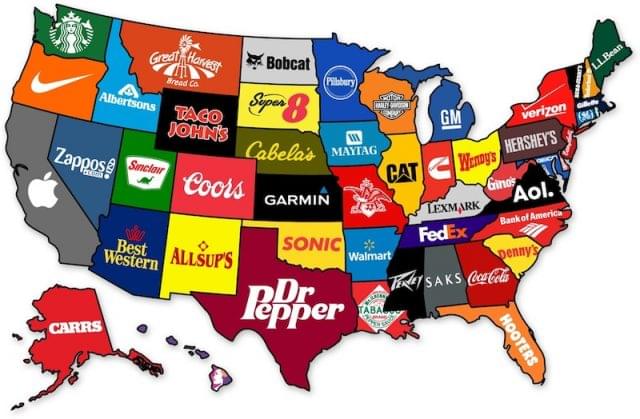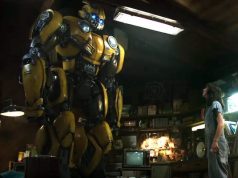
I have brand loyalty for Q-Tips. The generic cotton swabs are cheaper, but they also have noticeably less cotton on the ends. You might as well be cleaning out your ears with a screwdriver.
I’m partial to Q-Tips because of their non-screwdriver-like qualities, but sometimes we’re loyal to certain brands for reasons that are less logical than that: force of habit, perhaps, or a subconscious response to the pleasing shape of the company’s logo, or the knowledge that a particular product is made in Norway, and we’ve always been fond of the Norwegians. Whatever the reason, brand loyalty often plays a significant part in decisions about where to spend our money. But there are some industries in which the individual companies, try as they may, can’t get customers to become passionate about them.
Let us begin with movie theaters. Before the movie starts there’s usually a commercial for whichever conglomerate owns the cinema you’re sitting in: “Thank you for choosing AMC Theatres!”; “Welcome to Regal Entertainment!”; or whatever. Often these are elaborate animated productions touting all the amenities the theater offers. For example, did you know that refreshments are available in the lobby?? And that you should be courteous to other patrons by silencing your cell phone?? It is true!
The only thing I don’t understand about these ads is why they exist. People who are sitting in a movie theater do not need to be sold on the idea of going to the movies. That is self-evident. As for promoting the specific theater chain: again, we’re already there. We’ve already chosen Regal or AMC or Cinemark or whoever, and not to burst your bubble, but our choice had nothing to do with who owned the theater. Nobody ever says, “Hey, let’s go catch a motion picture down at the Carmike Cinemas!” People say, “Hey, let’s go watch this specific movie that we want to see at whichever theater is showing it nearest to our home!” Certain theaters might be avoided because they are rundown, unsavory, or infested with teenagers, but that doesn’t reflect on the entire chain.
In short: Relax, theater chains! There is no need to sell yourselves to us! We don’t care, and you’re all the same anyway!
That goes for you too, airlines. Every flight ends with a stewardess saying something to the effect of, “We know you have many options for air travel, and we thank you for choosing us!” And yes, technically, I guess we did “choose” your airline. We told Travelocity where we needed to go and when, and Travelocity gave us a list of options, and we selected the flight that was cheapest and had the fewest layovers — and yep, that happened to be one of yours. Congratulations, airline! Your policy of being a little bit cheaper this one random time has earned you a customer this one random time! Kudos!
It’s even more presumptuous when the stewardess says, “We thank you for spending part of your day with us!” — you know, like we just wanted to hang out for a while. Listen, don’t flatter yourself. I needed to go to Austin; you were flying a plane there; I tagged along. It didn’t really have anything to do with you.
I guess there are people who fly so frequently that certain patterns emerge, and they develop loyalties. Maybe the seats on one airline’s planes tend to be made of a slightly less rigid form of cement than on the others’. Maybe one airline’s stewardesses wear thicker pancake makeup and use more egregious Southern accents than the other airlines’ stewardesses. For the average person, though, every flight is approximately as exhausting and nightmarish as every other flight, and when something is unusually terrible — a lengthy delay, a foul-smelling seatmate, a wing falling off mid-flight — it has little to do with the name on the side of the plane. That’s just how air travel is (i.e., awful).
The only thing I know about individual airlines is that Southwest does not assign specific seats, in accordance with the company’s philosophy that flying with them should be as much like riding a bus as possible. All the other airlines run together in my mind into one indistinct puddle of stale air, stingy accommodations, and general misery.
The saddest example of trying to create brand loyalty where none can possibly exist is gas stations. The average person considers all gasoline to be exactly the same. Sociologists believe this perception stems from the fact that all gasoline is exactly the same. It doesn’t matter whether you buy it from Texaco, Shell, Arco, or somewhere else, or whether you refine it yourself in your own backyard, like the pioneers did. It’s all the same stuff. Yet the chains that own these gas stations spend millions in advertising to convince us that their gasoline is better than their competitors’. Chevron has Techron! It will clean your engine! The gasoline you buy at OTHER stations will fill your engine with gunk and remorse, but Chevron gasoline — with Techron! — is so clean that the exhaust from your car’s tailpipe will taste like lemon and have healing properties.
They go on and on, but we don’t believe them. First of all, “Techron”: that’s not even really a thing. They made that up. And anyway, even if we don’t know anything about cars, we at least know that gasoline is poisonous, and that the way an engine works is that it basically ignites that poisonous liquid so it explodes. The process is inherently filthy and toxic. So what do we do when we need gasoline? We go to whichever station is handy when we need it. If there are several options, we choose the cheapest one. The end.
Sorry, filling stations! You’re not like Q-Tips! You’re like movie theaters, airlines, and hipsters: you all look the same to us, and we are not interested in why you think you’re different. Please stop trying. Please stop asking us to “like” you on Facebook. We don’t like you. We don’t dislike you, either; we just don’t care. Keep selling us your services, and try to have a little dignity.




